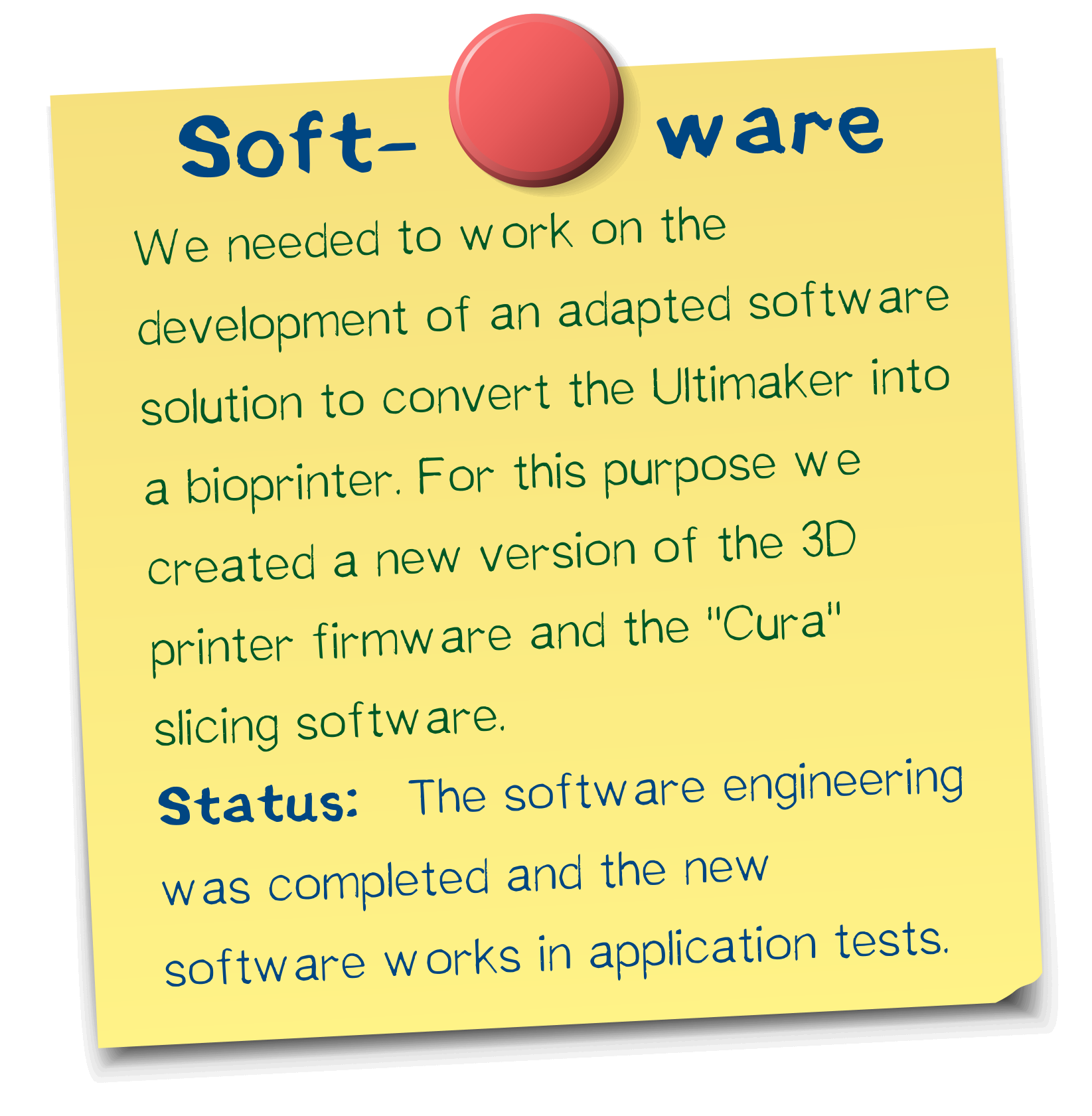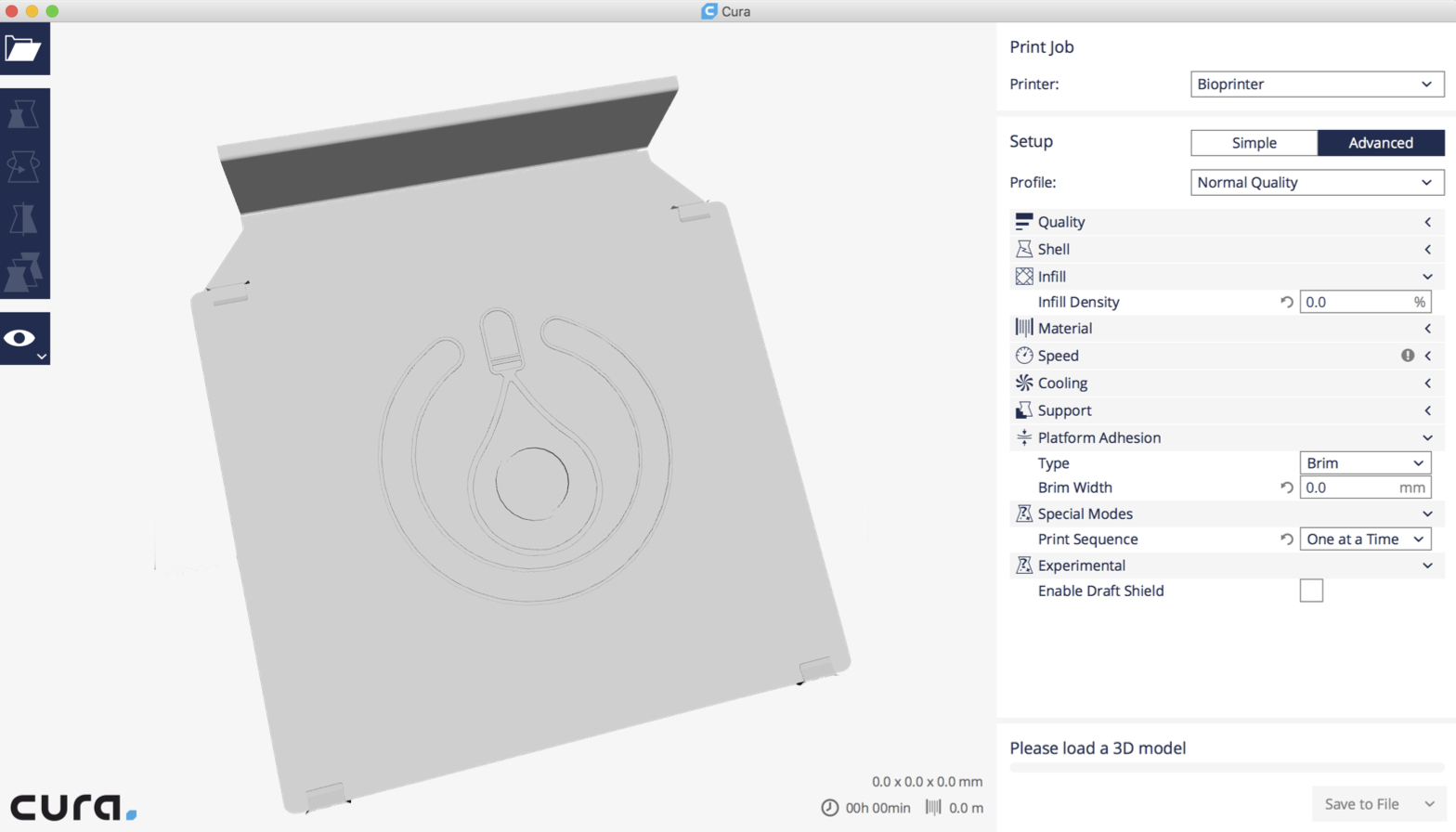Software: Getting the bioprinter working
Using a regular 3D-printer limits you to print amorphous structures with molten plastic polymers such as acrylonitrile butadiene styrene (ABS) or polylactic acid (PLA). So we've been upgrading our Bioprinter with a new printhead and a precise DIY syringe pump, which allows us to print structures composed of cells embedded in a proteinmatrix instead. To drive the syringe pump and control the new printing features we reprogrammed the Ultimaker 2+ firmware as well as the Cura software (Cura 2.1), which compiles the 3D print files in the gcode format.
Firmware
The resulted specific firmware can only handle one syringe pump on the extruder 2 connection. The modified firmware protects the bioprinter form damages which can result from collisions with the dish, it's holder or any other component.
Relevant firmware changes where:
- Activation and solitary usage of second extruder for the DIY syringe pump.
- Deactivation of temperature measurement and heating controls for bed and both extruders as these are unused and also allow to completely remove the filament extrusion head.
- Added syringe pump endstop detection for safety, which allows the pump to move away from a hit endstop only.
- Added additional calibration steps for leveling height of the building platform and at the border of the inner surface of the used dish.
- Deactivation of hardcoded retraction steps that are incompatible with syringe pump usage.
Download Firmware:
https://github.com/iGEM2016-LMU-TUM/UM2.1-Firmware/tree/bioink
Cura Software
The Cura software[1] got a modified machine description file and a upgraded graphical visualization of the building platform, which allows easier positioning of the 3D-model in the dish. Limits and special settings for slicing and gcode creation were introduced.
Download Software:
https://github.com/iGEM2016-LMU-TUM/Cura




